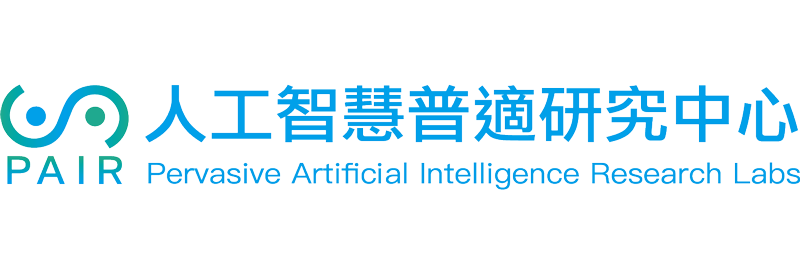Pervasive Artificial Intelligence Research (PAIR) Labs
Artificial Intelligence on the Assistance of Learning Board Games for Human
Principal Investigator:Professor Shi-Jim Yen
—
Summary
The goal of this project is to develop the AI techniques that assists human to learn board games techniques easily and efficiently. Board games training to the field of artificial intelligence is like trials over drosophila to the medical field. A series of AlphaGo and Alpha Zero programs create a history for AI. We believe that computer games will also play the role of the drosophila of computer-assisted learning. Because this project will investigate many kinds of games, it is expected that innovative Deep Learning(DL)/Reinforcement Learning(RL)/Deep Reinforcement Learning(DRL) techniques will be developed. In terms of the development of society, with the rise of AI, humans need better logical decision-making ability and critical thinking skills more than ever. Board games are great tools for exercising logical thinking. For children, playing board games helps them develop logical thinking abilities, and cultivates their resilience and perseverance. It is shown by a Gerontology research institute in Japan that Go could improve cognitive functions. As such, this project has positive effects on the development of society.
Keywords
Board Game, Alpha Go, Alpha Zero, Deep Learning, Reinforcement Learning, Deep Reinforcement Learning, Residual Network, Generative Adversarial Network, FeUdal networks, Seed Optimization.
Innovations
- We use DRL to train the models for personalized ladder and visual learning. It could improve the quality of our AI Go services. The services are running on an online AI-assisted board games learning platform for teaching, learning and playing Go. It will be the world’s largest AI Go service with 0.5 billion annual AI service count.
- We compress Chinese dark chess endgame databases with DL. This could increase the efficiency of Chinese dark chess programs. The paper is published in IEEE Transactions on Games.
- We analyze and develop efficient solutions for 2×4 Chinese dark chess.
- We use Seed optimization framework on board games, including Draughts, Othello, and Block Go. The framework could increase the strength of those game programs.
- For Board Evaluation research, we successfully developed a new technique called Board Evaluation Multi-Labelled Value Network (BV-ML-VN), and published in IEEE TCIAIG.
Benefits
- Computer board game is considered to be the drosophila of artificial intelligence. In the field of assisting human learning, we believe computer board games can also play the role of the drosophila. By exploring various types of games in this project, we could spark numerous new DL/RL/DRL technologies.
- We will develop/achieve the following important objectives:
- Online AI-assisted board games learning platform; teaching, learning and playing system for Go; world’s largest AI Go service website: 0.5 billion annual AI service count.
- Deep Learning research applied to Go AI personalities and playing styles; develop over a hundred bots with distinct personalities.
- Application to the popularization of Go and AI education; contribute to the the long-term care system; promote social welfare; prevent or slow cognitive impairment.
- We collaborate with the Nihon Ki-in (Japan Go Association), and with professional player Ming-wan Wang as consultant, and deploy an ample number of AI Go bots on their UGEN(Yugen no Ma) Go playing website. Currently, these bots are very popular among Japanese players, with over 120 million cumulative service count.
- Subproject 1 develops a Go teaching and learning system, and subproject 2 develops a Go learning environment. The system and environment could help people to learn Go techniques easily and efficiently. Subproject 2 also develops systems and environments for Jungo and Block Go. Jungo and Block Go were designed for the beginners of Go.
- Subproject 3 develops connection games teaching and learning systems. These connection games include Gomoku, Connect6, and Othello. Subproject 4 develops non-deterministic games teaching and learning systems. These non-deterministic games include Chinese dark chess, Mahjong and 55 dice shogi.

